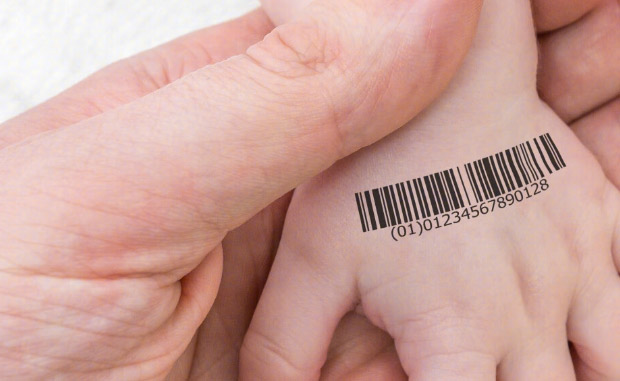Is surrogacy legal in New York, USA? Many friends have asked me this question privately before, and after a lot of reading and organizing, today I'm going to give you an idea about theThe Ultimate Guide to Surrogacy in New York, which is involved:
- An overview of surrogacy laws in New York;
- New York surrogacy is geared toward groups;
- Surrogacy Agreements in New York;
- New York Surrogacy Process;
- Surrogacy Costs in New York.
New York Surrogacy Overview
New York passed a law allowing surrogacy in 2021, which means that surrogacy services can be utilized in the state, and New York law allows prospective parents, surrogates, and their spouses to enter into enforceable surrogacy contracts as long as they meet the requirements set forth in the law. Although surrogacy agreements have been prohibited in New York for many years, the Child-Parent Safety Act of 2020 created new regulations and protections to ensure the safety of all involved.
Here's what the new law means for prospective parents:
- The prospective parents of a child conceived through third-party reproductive technology have a solid legal relationship with their child from the moment of birth;
- Legalization of compensatory surrogacy agreements;
- A simpler process for obtaining parental status for non-biological parents;
- For surrogate mothers, the new regulations mean:
- Surrogate mothers have the right to make all health and welfare decisions about themselves and their pregnancy, including termination;
- The surrogate mother will have independent legal counsel of her own choosing at the expense of the intended parents;
- Surrogate mothers are eligible for health insurance paid for by the prospective parents;
- Surrogate mothers will have access to life insurance.
New York Surrogate Prospective Parent Group:
Simply put, couples and individuals of different backgrounds, ages, and sexual orientations have had their babies through surrogacy.
Legal Surrogacy Group:
- Heterosexual couples suffering from infertility;
- Expectant mothers who are unable to have children;
- Prospective parents who have a genetic defect or health condition do not want to pass it on to their child;
- Queer LGBTQ+ Single people.
Elements of a Surrogacy Contract in New York
Surrogacy contracts are legal and enforceable in New York as long as the surrogacy needs meet the legal requirements. Of course if you don't know any better, make sure to consult your attorney will before you start your surrogacy services and he will make sure that your surrogacy contract meets these standards.
One thing to keep in mind: New York surrogacy contracts do not restrict the surrogate from terminating or continuing the pregnancy, meaning that the surrogate retains the right to decide whether to terminate or continue the pregnancy during the surrogacy process.
New York State Requirements for Surrogate Mothers:
- (b) Be at least 21 years of age;
- Not the child's biological mother;
- Complete a medical assessment;
- Acceptance of independent legal counsel;
- Have insurance that covers pregnancy (which can be purchased by the intended parents).
New York's prospective parents demand it:
- Acceptance of independent legal counsel
- Both parties are parties to the agreement (if married)
Signatories to the surrogacy agreement include the intended surrogate parents, the surrogate mother and her spouse, if applicable. The surrogacy contract must be signed prior to embryo transfer, and if the surrogate mother is to be compensated, the compensation must be deposited into an escrow account prior to signing the agreement.
Surrogacy Process in New York
For prospective parents, understanding and preparing for each step is an important part of the process.
If you know the U.S. well, then choosing to have a surrogacy (without the help of a surrogacy agency) is possible, but for most people, it may be difficult to move an inch out of the country, so choosing a professional surrogacy agency may be a better option.
Choosing a Surrogacy Agency
If you decide to find a surrogacy agency, there are actually quite a few of them in the country, and this is also a time when you need to carefully consider and identify them, as there are quite a few agencies that are just an intermediary, and you have come across quite a few people who have been scammed out of their deposits. My personal advice, it is important to find one that you can talk to, that can provide specific services according to your needs, and secondly, make sure that you have an agency that has an in-depth study of surrogacy laws in New York, or else you will be in trouble if something goes wrong.
Finding a Surrogate Mother
Surrogacy agencies will look for surrogate mothers corresponding to everyone's needs, such as age, skin, and education. Sometimes when it comes to this process will be more entangled, it is normal, because all want to find the best and affordable, there is nothing wrong with comparing more than a few quasi.
Finding an Egg Donor
Generally, prospective parents use their own gametes for nurturing, but there are many prospective parents who need to find egg donor volunteers for medical or status reasons, which is also allowed in New York. Eggs are also directly affected by the baby's genes, so the choice should also be made carefully.
Pregnancy and childbirth
It is very important to establish a close relationship with the surrogate mother during the pregnancy, unlike the underground agencies in the country, which impose too many constraints on the surrogate mother. If the prospective parents are not far from the surrogate mom, they can even visit her. After an October pregnancy and birth, the prospective parents can just go home with their baby.
How much does it cost to be a surrogate in New York?
Surrogacy cost has always been one of the most concerned points, here is the surrogacy cost in 2024 compiled by the webmaster for reference only.

New York Surrogacy Cost Breakdown:
Surrogacy All-Inclusive: $150,000 - $200,000 USD, which covers all surrogacy costs and unlimited transplants as well as any complications that may arise during the process, as well as agency fees, attorney's fees, screening and surrogacy fees, and insurance.
Some prospective parents may need an egg donor to complete the surrogacy, the cost of the specific egg has a lot to do with the condition of the volunteer, this can be communicated directly with the surrogacy agency, remember, the better the condition, the higher the cost will naturally be!
The webmaster concludes that today the surrogacy laws in the state of New York in the United States are much better than in previous years, and it is a very safe and legal way for families who want to come to New York for surrogacy, but make sure to choose a professional surrogacy agency, with their help, the surrogacy journey will be smoother.
New York Surrogacy FAQ:
Is paid surrogacy legal in New York?
A: Yes. The Child Parent Protection Act allows surrogate mothers (and egg/sperm donors) to be paid for their services. Any remuneration must be reasonable and negotiated in good faith between the parties.
Is traditional surrogacy legal in New York?
A: New York law on traditional surrogacy is complex. The Child Parent Protection Act only protects gestational surrogacy, so traditional surrogacy is only legal if the surrogate is altruistic and does not receive payment. Since the traditional surrogate is the biological mother of the child, she is the legal mother of the child under New York law, and the intended parents can only adopt with the consent of the surrogate mother.
Is it permissible if the intended parents use donated eggs, sperm or embryos?
A: If the prospective parents are using an anonymously donated gamete, the donor does not have parental rights. However, if the prospective parents are using a known donor, a New York surrogacy attorney will be needed to help with the necessary legal steps, and it is important to consult with your own surrogacy attorney.
If the prospective parents use a known donor, they should always sign a written gamete donation agreement in order to define the future expectations and responsibilities of both parties. Rest assured, however, that under New York surrogacy law, donors have no parental rights to children conceived through assisted reproduction.
What do New York's surrogacy laws say about paternity orders?
A. The Child Parent Protection Law allows for a paternity judgment to be issued prior to the birth of a child and to take effect at the time of the child's birth. A petition for a paternity judgment may be filed if the intended parent or surrogate mother has resided in New York for at least 90 days. A paternity order secures the rights of the intended parents to their child after the child's birth and terminates any presumed rights of the surrogate or egg/sperm donor.
The bill requires a copy of the paternity judgment to be filed with the Department of Health after the birth of a child to ensure that the birth certificate is accurate and lists the intended parents as the child's parents.



 WeChat Consulting
WeChat Consulting
 WhatsApp Consulting
WhatsApp Consulting







